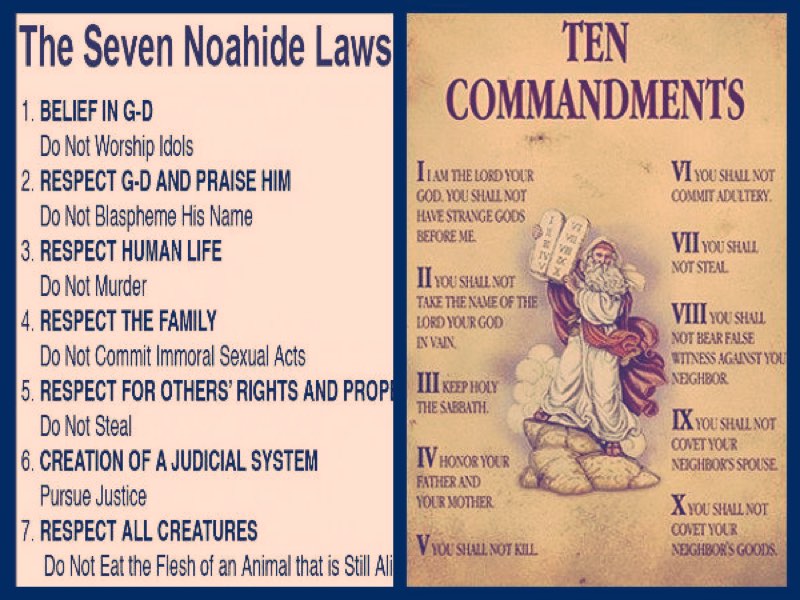What is the theological correlation between God's covenant with the descendants of Adam in Surah 7, verse 172, in the Quran and the Noahide laws in Jewish tradition?
Surah 7, verse 172, in the Quran and the Noahide laws in Jewish tradition both relate to the foundational principles of human responsibility and moral accountability as understood in their respective religious contexts.
1. In Surah 7, verse 172, the Quran describes a primordial event where God took a covenant from the descendants of Adam, making them bear witness to His Lordship. The verse implies that all of humanity acknowledges God's sovereignty and their inherent understanding of His existence.
This covenant is seen as a fundamental aspect of human nature, instilling a sense of moral and spiritual responsibility within each individual. It suggests that humans are innately aware of God's presence and their duties towards Him, even before their earthly existence.
2. In Jewish tradition, the Noahide laws are a set of seven moral imperatives given to Noah after the flood, which are considered binding on all of humanity. These laws include prohibitions against idolatry, blasphemy, murder, sexual immorality, theft, consuming flesh torn from a living animal, and the requirement to establish courts of justice.
The Noahide laws are viewed as the basic ethical framework that ensures the moral conduct of all people, not just Jews. They represent a universal covenant between God and humanity, emphasizing the importance of justice, respect for life, and ethical behavior.
Theological Correlation:
Both the Quranic covenant and the Noahide laws emphasize a universal aspect of moral responsibility to God and ethical conduct. They suggest that all humans, regardless of their specific religious identity, are bound by certain fundamental principles that guide their behavior and relationship with God.
Innate Knowledge of God:
Surah 7, verse 172, suggests that the knowledge of God and the obligation to worship Him are inherent in all humans. Similarly, the Noahide laws presuppose an innate understanding of basic moral principles that are accessible to all people.
Divine Covenant:
Both traditions highlight a form of divine covenant that establishes the basis for human accountability. In Islam, this is illustrated by the pre-earthly covenant with the descendants of Adam. In Judaism, the Noahide laws represent a post-flood covenant with all of humanity through Noah.
Ethical Monotheism:
The Quranic verse and the Noahide laws both promote ethical monotheism, where belief in one God is coupled with the adherence to ethical principles. This concept is central to both Islam and Judaism, underscoring the importance of worshiping God and living a morally upright life.
In summary, the theological correlation between Surah 7, verse 172, and the Noahide laws lies in their shared emphasis on a universal, inherent recognition of God and the moral responsibilities that stem from this recognition. Both underscore the idea that all humans are bound by a covenant with God that calls for ethical behavior and accountability.


